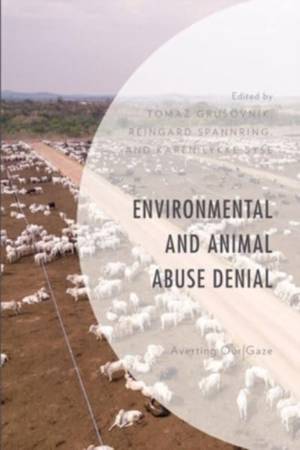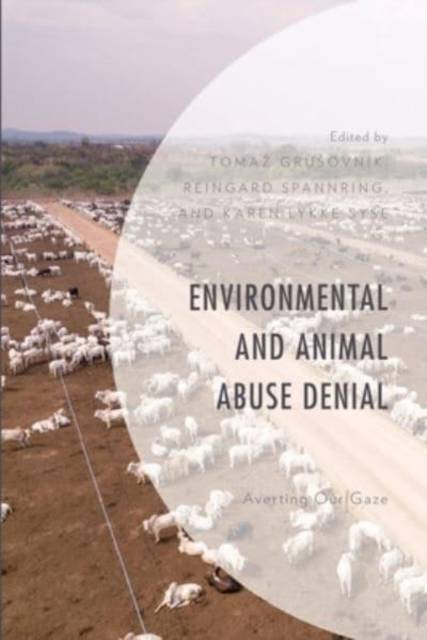
- Afhalen na 1 uur in een winkel met voorraad
- Gratis thuislevering in België vanaf € 30
- Ruim aanbod met 7 miljoen producten
- Afhalen na 1 uur in een winkel met voorraad
- Gratis thuislevering in België vanaf € 30
- Ruim aanbod met 7 miljoen producten
Zoeken
Environmental and Animal Abuse Denial
Averting Our Gaze
€ 72,95
+ 145 punten
Omschrijving
The staggering rate of environmental pollution and animal abuse despite constant efforts to educate the public and raise awareness challenges the prevailing belief that the absence of serious action is a consequence of a poorly informed public. In recent decades alternative explanations of social and political inaction have emerged, including denialism. Challenging the information-deficit model, denialism proposes that people actively avoid unpleasant information that threatens their established worldviews, lifestyles, and identities. Environmental and Animal Abuse Denial: Averting Our Gaze analyzes how people avoid awareness of climate change, environmental pollution, animal abuse, and the animal industrial complex. The contributors examine the theory of denialism in regards to environmental pollution and animal abuse through a range of disciplines, including social psychology, sociology, anthropology, philosophy, cultural history and law.
Specificaties
Betrokkenen
- Uitgeverij:
Inhoud
- Aantal bladzijden:
- 242
- Taal:
- Engels
- Reeks:
Eigenschappen
- Productcode (EAN):
- 9781793610485
- Verschijningsdatum:
- 18/08/2022
- Uitvoering:
- Paperback
- Formaat:
- Trade paperback (VS)
- Afmetingen:
- 152 mm x 229 mm
- Gewicht:
- 331 g

Alleen bij Standaard Boekhandel
+ 145 punten op je klantenkaart van Standaard Boekhandel
Beoordelingen
We publiceren alleen reviews die voldoen aan de voorwaarden voor reviews. Bekijk onze voorwaarden voor reviews.






